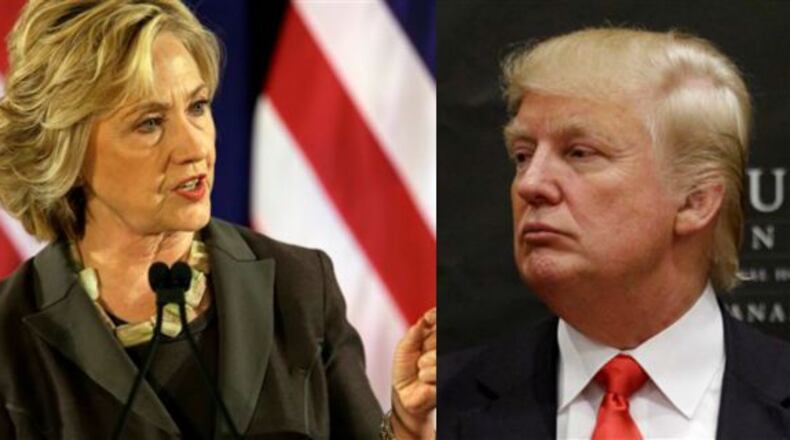OK, Republicans. If you really, really want to do this .... if you really do want this man Donald Trump as your party's nominee to be president of the United States, as some 60 percent of New York Republicans did Tuesday, you clearly have the power to still make that happen.
If you pays your money, you get to take your chances, such as they are.
The goal of the #NeverTrump movement in New York had been to hold him beneath 50 percent. They did not come close to achieving it. To compound the problem, Trump's top challenger, Ted Cruz, performed abysmally, coming in a weak third with just 14.5 percent of the GOP vote, 45 points behind Trump and 10 behind John Kasich.
Cruz has shined recently in the backrooms, in the nitty-gritty of detail work of politics, but a 45-point loss and third-place finish will leave a scar on his candidacy. It also doesn't bode well for Cruz in the string of upcoming GOP primaries in the Northeast and mid-Atlantic -- Maryland, Connecticut, Pennsylvania, Rhode Island and Delaware -- and it doesn't say much for his potential as a general-election candidate outside the South, where his white evangelical base is concentrated.
In exit polls, for example, 36 percent of New York Republicans said they would be concerned or frightened about a Trump presidency. A remarkable 60 percent of GOP voters said the same about a Cruz presidency, and 40 percent of New York Republicans said they flat out would not vote for the Texas senator.¹
As a gleeful Trump said afterward, "We don't have much of a race anymore." For the moment that's still more brag than fact, but it's becoming more true than his opponents would like.
On the Democratic side, Hillary Clinton also enjoyed a strong night. Her easy, 15-point margin against Bernie Sanders makes the delegate math even more daunting for her opponent. She has now built a lead among earned delegates -- delegates that she won at the ballot box, not superdelegates -- that is almost impossible for Sanders to overcome. The size of her victory also cripples Sanders' argument to superdelegates that he would be the better general-election choice.
As a result, he may have a week left as a legitimate contender; after that, his campaign devolves into something less positive. Absent a miracle in the five states that will vote April 26 -- and polls say a miracle is unlikely -- Sanders would no longer have even a long-shot chance at taking the nomination. That will be a profound disappointment to his backers, but one they should prepare themselves to swallow.
They have a lot of reason for pride and satisfaction. Sanders has proved an effective messenger, highlighting issues and stances that may otherwise have been downplayed and forcing Clinton to respond. He has also inspired millions to get involved by donating time and money to his cause, and it's hard thing to let a crusade die. But the end is approaching.
¹ Among Democrats, 33 percent said they would be frightened or concerned about a Clinton presidency; 38 percent said the same about Sanders. Some 14 percent of Democrats said they would not vote for Clinton if she were the nominee, while 23 percent of Republicans said the same about Trump.
About the Author
The Latest
Featured



